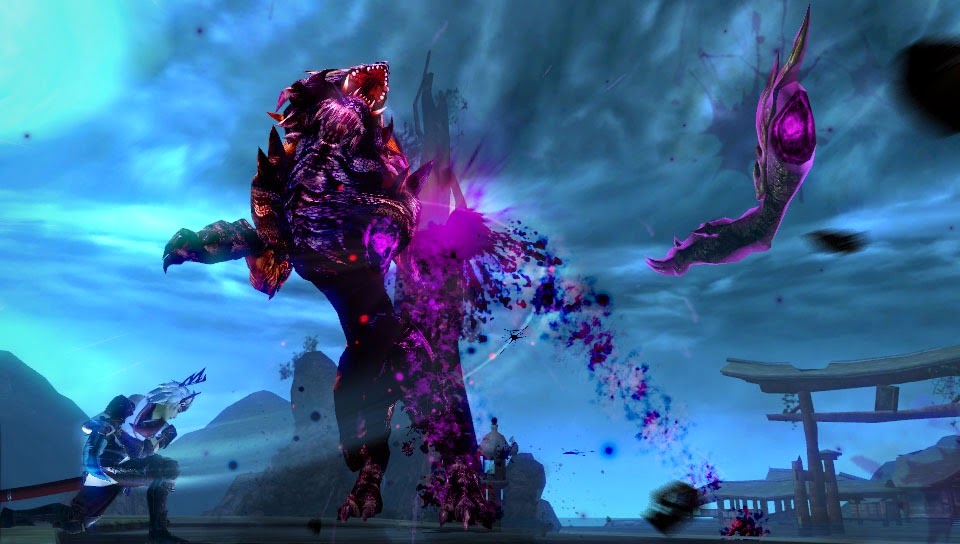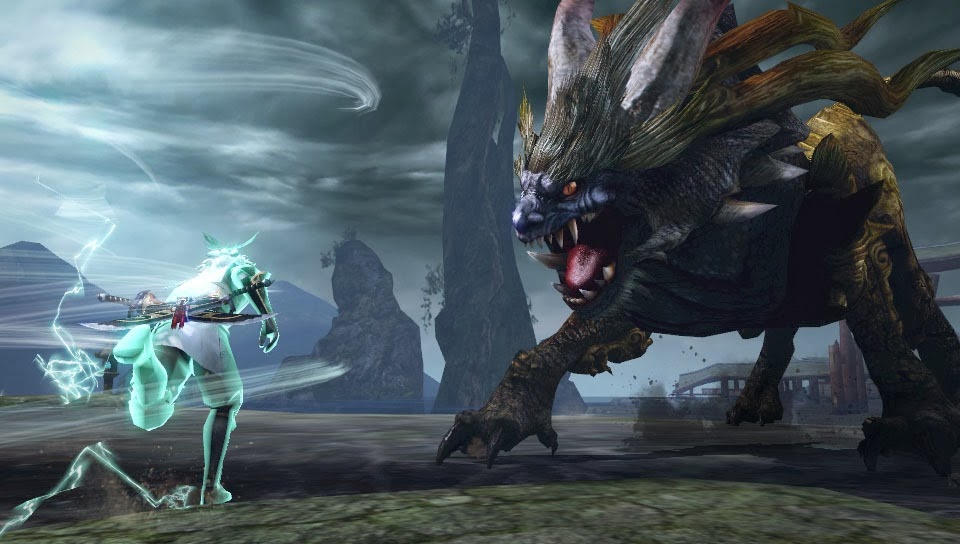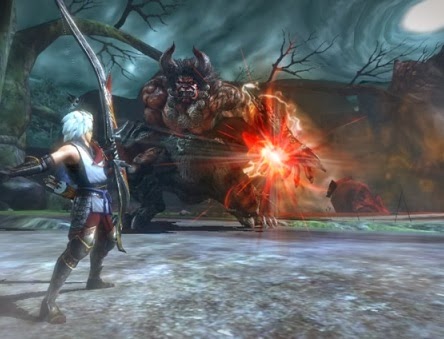Review by Matt S.
What does it mean that I prefer the “Monster Hunter clones” to the actual Monster Hunter games? I was thoroughly entertained by Soul Sacrifice, released on the PlayStation Vita not long ago, and I am absolutely compelled by Tecmo Koei’s Toukiden.
I know I’ve just committed blasphemy to paper by writing that I do think these “clones” have out-Monster Huntered Monster Hunter, but there are certain elements common to both Soul Sacrifice and Toukiden that elevate these games above and beyond what Monster Hunter offers.
On a basic level first, though; all of these games focus on a common central theme; the boss battle, where players duke it out with massive, powerful, and tough enemies in conflicts that can take as much as 50 minutes of solid, consistent fighting to complete.
All three games are so tightly wound around this theme, and yet Monster Hunter is lauded for being an innovator, while the “clones” are considered derivative. This arbitrary categorisation is unfair, I feel. Soul Sacrifice and Toukiden might be all about the monster battling, but where Monster Hunter feels largely empty outside of that combat, Soul Sacrifice and Toukiden feel like better realised fantasies.

As players move through the game they obtain spirits of Japanese heroes of old that will assist them in battle. These Mitama can be bonded with equipment to provide players with a range of boosts in combat; some are defensive, and will buff various defensive skills or provide shields while others are offensive and increase attack power. Still others provide stronger healing capabilities to your allies. For people who actually know the story of the likes of Abe no Seimei, the presence of these Mitama grounds Toukiden in a more natural fantasy than something like Monster Hunter, and creates an interesting historical context for the game to exist within.

That same respect and authenticity pervades Toukiden’s world. While Oni monsters aren’t real, there’s a deep care in the game for Japanese spirituality, which brings the experience to life. Players will acquire a Tenko, a white two-tailed fox who can be sent on missions to acquire treasures on behalf of the player. The fact that traditional Japanese spirituality has a deep connection to foxes means that Omega Force wants you to bond with your little Tenko, and it genuinely works; the Tenko is adorable. As with any Omega Force game this respect for cultural authenticity means that some conversations between characters seems a little odd for people less familiar with traditional Japanese philosophy, but regardless of whether you find it compelling or confusing, Toukiden does have a far stronger theme to its world than Monster Hunter.

Just like Monster Hunter, outside of combat there’s only a small village to explore, and that village can be used to upgrade equipment and the like, but the stronger sense of narrative and the more readily identifiable mythology makes Toukiden’s village the more interesting one. While I perhaps admired Soul Sacrifice’s unrelenting dark vision more, as it was the more visceral experience, Toukiden is the most beautiful and playable “Monster Hunter clone” to date.
– Matt S.
Editor-in-Chief
Find me on Twitter: @digitallydownld








